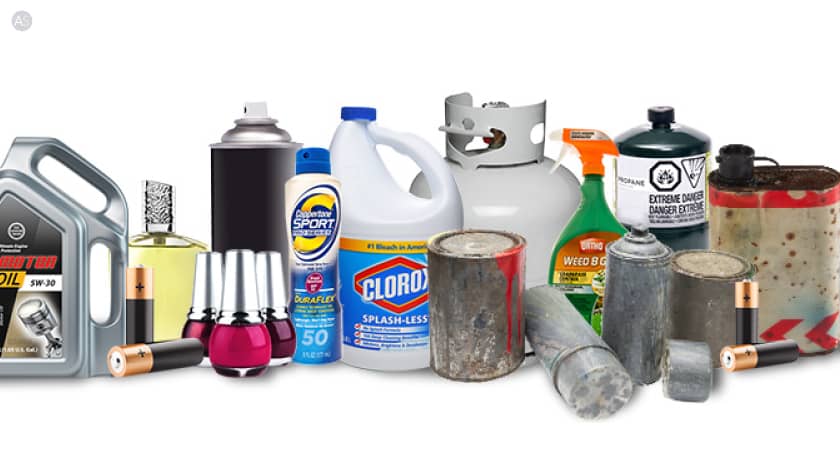
A Responsible Approach: Disposing of Household Hazardous Waste
Homeownership comes with a myriad of responsibilities, and one crucial aspect is the proper disposal of household hazardous waste. From cleaning products to old electronics, many common household items contain substances harmful to both the environment and human health. In this guide, we’ll navigate the process of responsibly disposing of household hazardous waste, ensuring a safer and more sustainable living environment.
Understanding Household Hazardous Waste
Household hazardous waste includes a range of items that, if improperly disposed of, can pose risks to the environment and public health. This category encompasses items like pesticides, cleaning agents, batteries, fluorescent bulbs, electronics, and more. Recognizing these items is the first step towards responsible disposal.
Check Local Regulations and Collection Programs
Before diving into the disposal process, check local regulations and available collection programs. Many municipalities have specific guidelines for the disposal of hazardous waste and may provide scheduled collection events or designated drop-off locations. Understanding these local resources streamlines the disposal journey.
Sorting and Identifying Hazardous Items
Begin the disposal process by sorting through your household items. Identify products labeled with terms like “toxic,” “flammable,” or “corrosive.” Additionally, recognize items with warning symbols, such as batteries or electronic waste, which often contain hazardous materials. Segregate these items from regular household waste for proper disposal.
Researching Recycling and Take-Back Programs
Certain hazardous items, such as batteries or electronics, may be eligible for recycling or take-back programs. Research options available in your area to responsibly recycle these items. Many retailers and manufacturers offer programs for safe disposal or recycling of specific products.
Safe Handling and Packaging
When dealing with household hazardous waste, safety is paramount. Follow recommended guidelines for handling these materials, which may include wearing protective gear. Ensure that items are securely packaged to prevent leaks or spills during transportation to a disposal facility.
Utilizing Household Hazardous Waste Collection Days
Take advantage of household hazardous waste collection days organized by local authorities. These events provide an opportunity for residents to safely dispose of hazardous materials. Check your community’s schedule and participate in these designated collection days.
Proper Disposal Methods for Different Items
Different types of household hazardous waste may require specific disposal methods. For example, paint or chemical products may need to be taken to a hazardous waste facility, while electronics can often be dropped off at designated recycling centers. Understand the proper disposal methods for each type of item.
Educating Yourself on Alternatives
In addition to proper disposal, consider alternatives that minimize the generation of hazardous waste. Explore eco-friendly and non-toxic alternatives for cleaning products, and choose products with minimal packaging. Being mindful of your purchasing habits contributes to a reduction in hazardous waste production.
Raising Awareness in the Community
Promote awareness of responsible household hazardous waste disposal within your community. Share information about local collection programs, recycling options, and proper disposal practices. Encouraging neighbors to adopt these practices creates a collective impact on environmental stewardship.
Supporting Environmental Initiatives
Explore ways to support environmental initiatives related to hazardous waste. Engage with local organizations or participate in community clean-up events. By actively contributing to environmental causes, you become part of a broader movement towards sustainability.
Embracing Responsible Living
To delve deeper into responsible living practices and sustainable initiatives, visit Dispose of Household Hazardous Waste Responsibly. By adopting eco-friendly habits and advocating for responsible disposal, you contribute to a healthier environment and a more sustainable future.
In conclusion, responsibly disposing of household hazardous waste is a shared responsibility that starts at home. By understanding the nature of these materials, utilizing local resources, and promoting responsible practices, you play a crucial role in protecting both your community and the planet.










